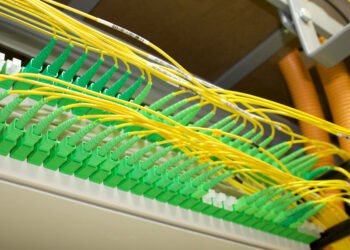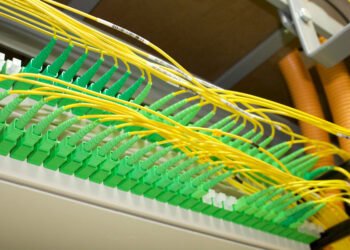Protecting your DNS from attack might seem silly. After all, this has not been much of a publicized issue over the years and many people are not even aware that their DNS could be at risk for attack. It seems like all kinds of cyberthreats are on the rise in recent years, and users and business owners alike need to be aware of all of the necessary security that they should have in place to protect their data.
Many large entities have become victims of DNS hacks in recent years, and these kinds of malware or another kind of cyberattacks can make it possible for hackers to prevent access to sites, steal data, and alter the site’s behavior. Most of the attacks are to gain attention and notoriety, but there can also be other reasons that a hacker might attack a DNS as well.
If you are ready to learn more about protecting your DNS from online threats, read on!
What is a DNS?
The Domain Name System is a building block of the internet. This is what allows you to map the names of websites to the numbers that make up the actual website address and location. DNS names are associated with IP addresses as well, which can allow your brand or your business to be linked to the right overall IP address when accessed.
When hackers attack your DNS, they can lock people out of access to their accounts and information, route your site to the wrong landing pages or external sites, and change your domain name itself. This can cause all kinds of problems for your business and it can lead to other kinds of cyber threats as well.
Protecting Your DNS From Online Threats
1. Audit Your DNS Zones
This is the first step that you need to take if you want to assess the security in place for your DNS. You will need to review the configuration of your server to find out what your DNS zone is. You should always take the time to periodically test domain names and subdomains to see if they are vulnerable to attack. There are various tools that can be used to look at the behavior of your DNS over the past month or more, plus, you can track which results have been returned in your recent checks using these tools too.
Making sure that your sites are up and running as they should be, that the domain names are correct and that all the functions on the site are right is an important part of your DNS maintenance. There is nothing that is quite as effective as simply checking on your sites to be sure that they are behaving as they should.

2. Keep DNS Servers Up to Date
Keeping any kind of computer or server up to date is the only good way to prevent breaches of your security. Updates tell electronics what to be wary of and how to better assess attacks and other issues related to malware. If you are not updating your DNS server as you should be, you are leaving it open to attacks of all kinds.
Patches come through frequently for DNS servers, all of them aimed at adding layers of protection against recent threats that have surfaced. This is why it is so important to be sure that you are maintaining your operating system and hardware with the right updates.
3. Restrict Zone Transfers
This is a function that can be done for good reasons when slave name servers query master DNS servers, but attackers can also use this function to understand the nature of your network and gain insights into the right ways to hack it. You can restrict your DNS to prevent zone transfers, or in some cases, you can limit the allowed IP addresses that make these requests.
This is one of the most effective ways to protect and keep all of your DNS zone information private. This might be a function that you are not familiar with but if you hire an expert to help you with your DNS protection needs or do some research online, you should be able to take care of this necessary step with ease.

4. Use Isolated DNS Servers
This is a good practice that small businesses often use because so much of their data will be stored in a single location. You can actually run your DNS server using a dedicated server or a cloud and this will better protect your DNS. This is the best practice that you should apply if you have all of your proverbial eggs in one basket, as many small companies do.
Server hardening and protections are crucial for DNS servers, particularly if you do not have any redundancy built into your system. Both cloud and dedicated servers work well for this need, and you can make sure that all unused server ports are not allowed to be accessed when you set this up, for added protection.
Protecting Your DNS is Important

No matter how big or small your business is, you need to protect your DNS from attacks. Just like any other form of hack, making sure that updates are in place and safety measures are taken can save you a lot of headaches related to hacking or malware. You should always assume that there are potential threats out there that you cannot predict and make sure that you have a “worst-case” mindset about all of your online security planning.
At the end of the day, being over-prepared is always better than being caught off guard. If you have too much security in place, it is a good thing when compared to having too little. Being conservative in today’s online security reality is like asking for your company to be attacked. Always make sure that you work with an expert or a team who is versed in DNS protection if you are not sure that you are up to the challenge of managing your DNS security needs alone.























































